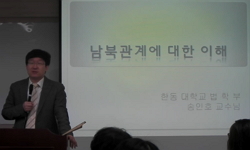This study aims at the character of German transformation after the unification. It is not so-called market-driven, but a state agency, named Treuhandanstalt fulfiled the business. Treuhandanstalt investigate the concept of the firm and monitored the ...
http://chineseinput.net/에서 pinyin(병음)방식으로 중국어를 변환할 수 있습니다.
변환된 중국어를 복사하여 사용하시면 됩니다.
- 中文 을 입력하시려면 zhongwen을 입력하시고 space를누르시면됩니다.
- 北京 을 입력하시려면 beijing을 입력하시고 space를 누르시면 됩니다.

통일 독일의 체계전환과 민영화 전략의 특징-신탁관리청과 “상세한 협상계약 방식 = System transformation after German unification and the charateristic of the Privatiszation Strategy: Treuhandanstalt and “detalied negotiayed contracts” method
한글로보기https://www.riss.kr/link?id=A102716920
- 저자
- 발행기관
- 학술지명
- 권호사항
-
발행연도
2017
-
작성언어
-
- 주제어
-
KDC
300
-
등재정보
KCI등재후보
-
자료형태
학술저널
-
수록면
164-190(27쪽)
- 제공처
-
0
상세조회 -
0
다운로드
부가정보
다국어 초록 (Multilingual Abstract)
This study aims at the character of German transformation after the unification. It is not so-called market-driven, but a state agency, named Treuhandanstalt fulfiled the business. Treuhandanstalt investigate the concept of the firm and monitored the exercise by “detailed negotiaed contracts”. Its duty is not only the shift of the ownership, but also the restructuring of the firm. If necessary, she gave the subsidy and facilitate the succession of the employment. At the early of 1992, the priority of the policy shifted from “the fast privatization” to “the high employment succession”. It considered the `need of local economy` and `the logic of industry`. In the sensible branches, ex. ship or steel, it is required to govern the interests of various collective actors, so we need a new perspective to analyze them. the next step will be to analyze the micro political process of the economic policy-making.
동일학술지(권/호) 다른 논문
-
개인의 노력 및 선호를 반영한 불평등 측정: 등가소득 분석
- 민주사회정책연구원
- 박강우 ( Park Kangwoo )
- 2017
- KCI등재후보
-
외환위기 이후 제조업과 서비스업 간 임금격차 추이와 원인 분석
- 민주사회정책연구원
- 권덕희 ( Kwon Dyuk Hyui )
- 2017
- KCI등재후보
-
한국사회의 건강불평등 진단과 대안-사회경제적 불평등을 중심으로
- 민주사회정책연구원
- 조현연 ( Cho Hyun-yun )
- 2017
- KCI등재후보
-
두 개의 대한민국?-시민종교 접근으로 본 전환기의 한국사회
- 민주사회정책연구원
- 강인철 ( Kang In Cheol )
- 2017
- KCI등재후보




 KISS
KISS




